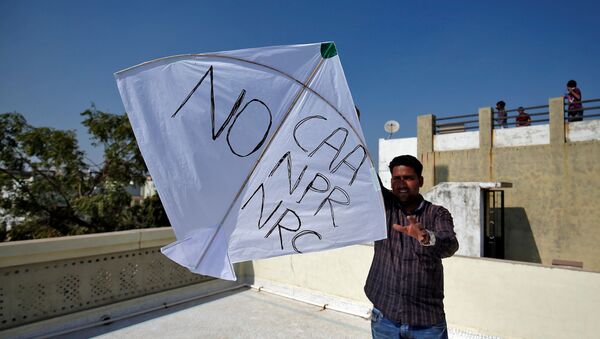The Indian Union Muslim League (IUML), a majority Muslim political party on Thursday filed two fresh pleas with the Supreme Court of India – one challenging the Citizenship Amendment Act 2019 (CAA) and the second seeking clarifications on the National Register of Citizens (NRC) and National Population Register (NPR). They had filed a similar petition with the apex court in December 2019 concerning the CAA.
The IUML says the law is anti-Muslim, as it only grants citizenship to a section of immigrants from the neighbouring Islamic countries of Afghanistan, Bangladesh, and Pakistan and makes an exclusion based on religion.
In its second plea, the IUML asked the court to issue appropriate directions to the government, to clarify whether the NRC and NPR were linked.
"We request the Supreme Court to pass orders directing the Indian government to clarify whether the NRC and NPR are related and stay its nationwide implementation during the time the present petition is pending before the apex court", the petition said.
While the NRC is a supreme court-monitored exercise to identify genuine citizens and deport illegal immigrants, the NPR's objective is to create a comprehensive database of every "resident" in the country by collecting their demographic and biometric data.
The opposition has repeatedly claimed that the NPR is the government's first step towards the implementation of a nationwide NRC.
However, Indian Home Minister Amit Shah said in an interview with national news agency ANI that there was no link between the NRC and the NPR.
"I am clearly stating this … NPR is a register of the population, while the NRC is a register of citizens. There is no link between the two and the two have different processes", Shah said.
Since the enactment of the law, several opposition parties, civil rights groups, and university students have come out against it. Many states not governed by the BJP have made it clear that they will not be a party to enforcing the law. The southern state of Kerala has challenged the law in the Supreme Court of India, contending its constitutional validity.
The amendments to the Indian Citizenship Act, enacted in December 2019, grant citizenship to persecuted Hindus, Sikhs, Christians, Buddhists, and Parsis from Pakistan, Bangladesh, and Afghanistan. Conspicuously, Muslims were left out of the law, causing the ongoing demonstrations, with protesters alleging it to be discriminatory and unconstitutional.
Prime Minister Modi, meanwhile, has maintained that the "law gives citizenship and does not snatch it from anyone".


